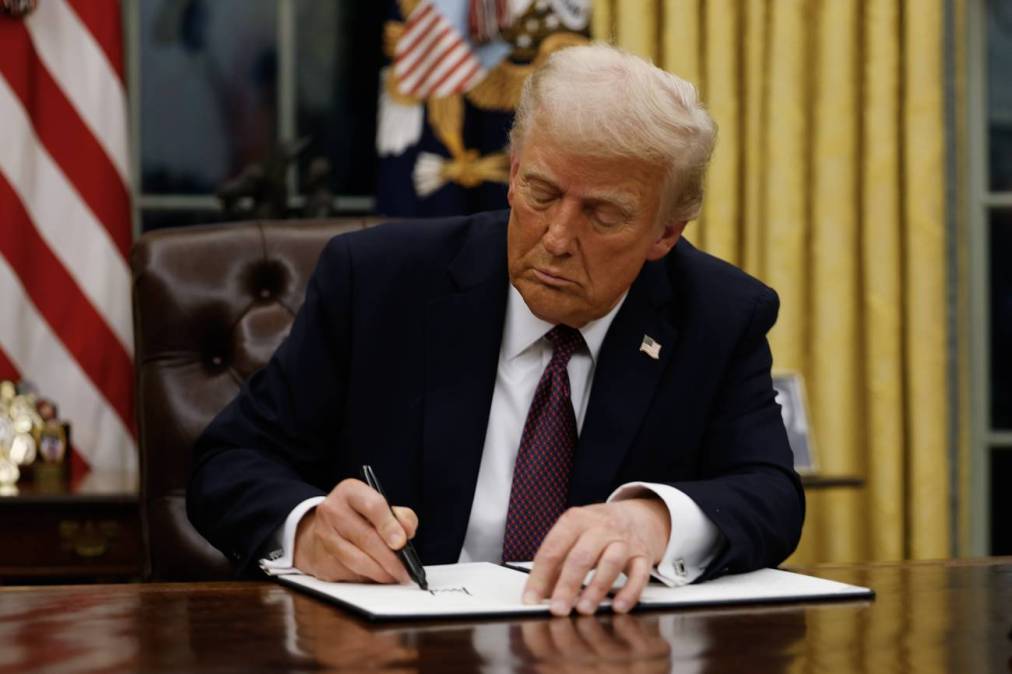Broadband expansion in limbo after Trump order pausing infrastructure funds

Following an executive order signed by President Donald Trump on his first day in office that paused the delivery of federal funds earmarked by the Biden administration for infrastructure projects, such as broadband expansion, the future of those efforts is up in the air.
The order, one of nearly 100 executive actions the president took on Monday, directs federal agencies to “immediately pause” the disbursement of funds appropriated through the Inflation Reduction Act of 2022 and the Infrastructure Investment and Jobs Act of 2021, the latter of which created the Broadband Equity, Access, and Deployment, or BEAD, program.
The program, which was a central component of the Biden-Harris administration’s “Internet for All” initiative, is the largest of several broadband funds comprising the initiative that would have allocated a total of $65 billion to the states to improve access to affordable, reliable high-speed internet.
Other programs created under the “Internet for All” initiative, such as the three digital equity grant funds and the “middle-mile” fund, are further along in their disbursement process, and aren’t expected to be impacted much by Trump’s order to pause funding. But for BEAD, the effects of the pause — especially for the states that haven’t had their final funding proposals approved by the National Telecommunications and Information Administration — are unknown.
Jennifer Hickerson, a senior manager who specializes in telecommunications at the professional services firm Moss Adams, said Trump’s motivations for pausing the BEAD program, which created a $42.45 billion pot of funds for states to apply for, appear to be a “mixed bag.”
The impact of the order, Hickerson said, will depend heavily on who Trump picks to lead the NTIA. Alan Davidson, who served as its administrator since January 2022, stepped down Monday.
“Nothing in it, so far, seems to indicate yet what [Trump’s] going to do as far as any major changes. So with that order, we don’t have clarity just yet — we just have a what appears to be a, ‘Slow down for a minute, let me get some people in place and create some plans,’ and then I think we’re gonna have to wait and see a little bit until some of those people get put in place and some of those plans start to come forward,” Hickerson said.
‘Out the door’
Hickerson noted that Arielle Roth, telecommunications policy director for Sen. Ted Cruz, is rumored to be Trump’s pick for NTIA administrator. StateScoop could not verify the rumor. Cruz has been critical of the program, last November calling BEAD “unlawful” and a “boondoggle.”
All 56 states and territories met the December 2023 deadline to submit initial proposals for the BEAD program, but only three states — Delaware, Louisiana and Nevada — have selected internet service providers and have had their final proposals approved.
“At least three states are out the door, in theory, as far as having those plans approved, having those awards to the internet service providers and the providers that put together applications and were provisionally awarded,” Hickerson said. “Now, those states can move forward awarding those funds and getting those projects started, unless there’s something that comes out that indicates otherwise. But at this point, it’s out the door and into the states.”
StateScoop contacted those three states. Only Delaware responded — a spokesperson from the Department of Technology and Information only said the Delaware Broadband Office was “monitoring the situation and awaiting formal NTIA guidance.”
‘Slow down’
For the remaining states and territories, working through the final steps to obtain BEAD funding — which includes the sub-grantee selection process from eligible ISP entities — may take longer, Hickerson said. Several states were set to receive more than $1 billion.
“Best case scenario, maybe it looks like it’s slowed down a little bit, but those states still get to move and operate from the processes that they’ve put in place,” she said. “There may be some requests to make some changes, and we’ll have to see what those might look like. But that’s where some of those states might be impacted, and it’s less about ‘You can’t do this at all,’ and maybe more like a: ‘Slow down for a quick second, and then we might have some adjustments we want to make to how you’re going to implement these programs.'”
Hickerson said the Trump administration may, for instance, pursue elimination of a waiver to the BEAD program’s “Build America, Buy America” rules. The NTIA’s waiver allows exceptions to requirements that a majority of equipment and materials for BEAD fiber rollouts are made in the United States.
Starlink
BEAD’s alternative technologies guidelines stipulate that in certain circumstances, BEAD funds can be used to deploy other technologies where deploying fiber is too expensive. According to the NTIA, one option is low earth orbit satellite, like Starlink, the satellite broadband service operated SpaceX. That company is owned by Elon Musk, whom Trump named as the lead administrator of his Department of Government Efficiency.
Several states have already awarded BEAD funds to alternative technology providers, like Louisiana, which allocated $28.7 million to an unnamed alternative technology provider to cover nearly 2,900 locations — the funds will most likely go to Starlink or Amazon’s Project Kuiper, both of which received pre-approval. Nevada awarded BEAD funds to Project Kuiper, as well.
Other states are exploring Starlink. Both New Mexico and Maine are considering awarding broadband funds to Starlink, and last May Virginia became one of the first states to offer its localities satellite internet service from Starlink.
“There is some incentive to look at this given who some of the advisors to Trump are right now, including Elon Musk — to look at this and consider whether those alternative technologies and the way those technologies have been prioritized under the BEAD program need to be reconsidered,” Hickerson said.






